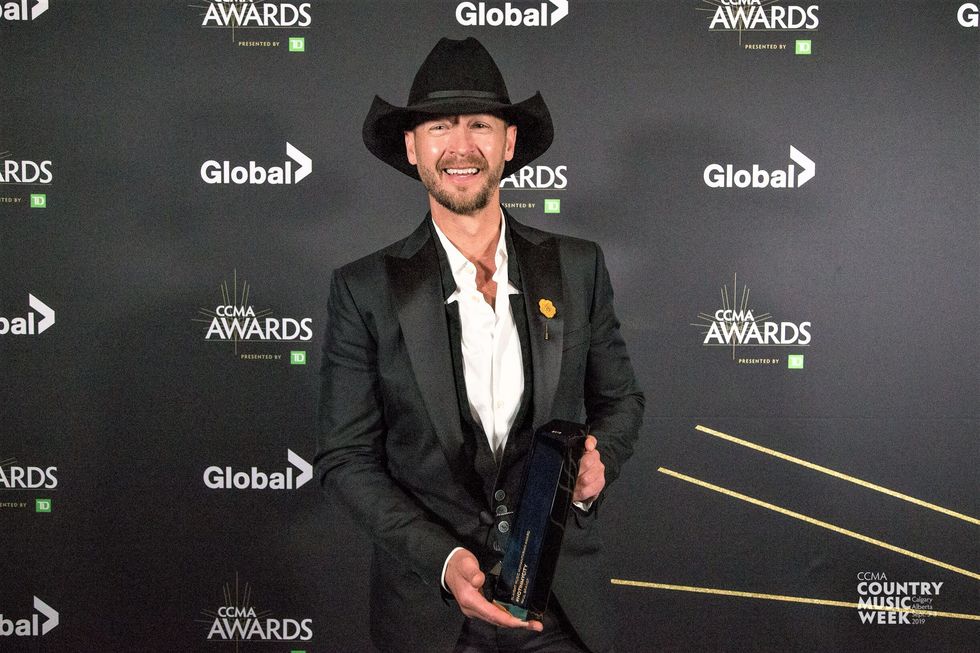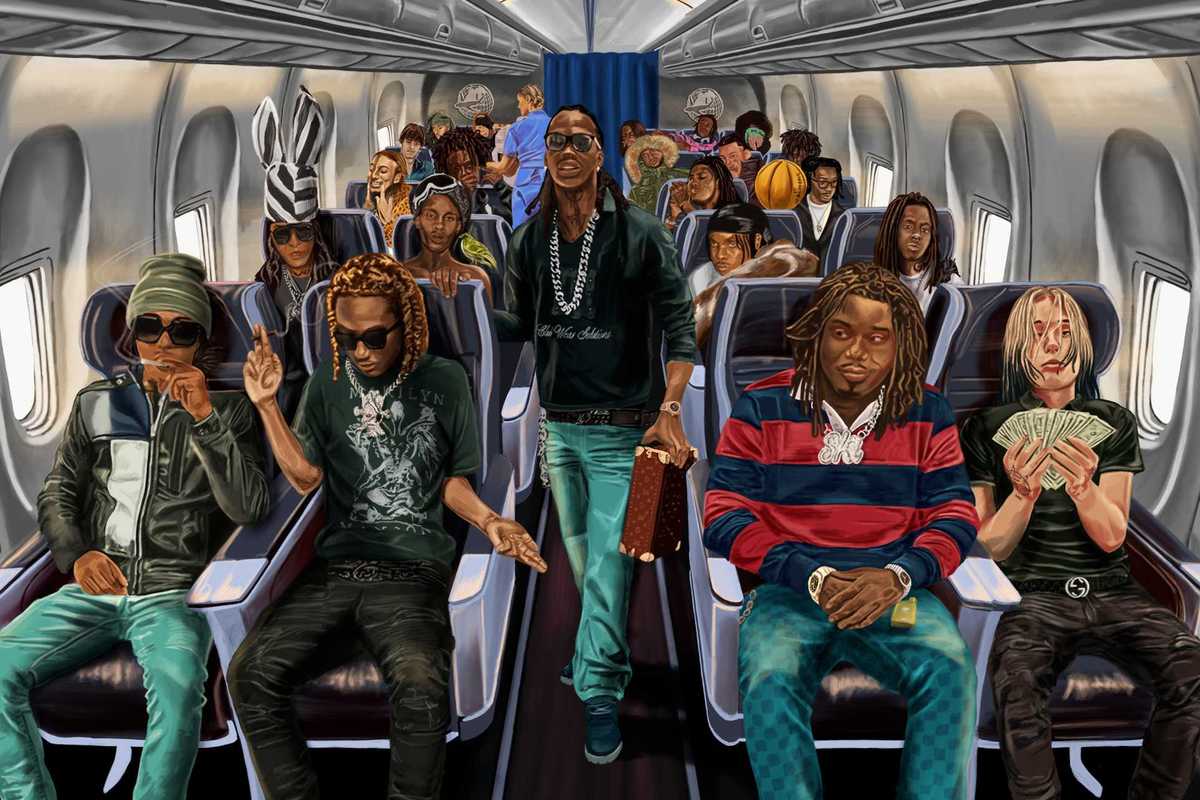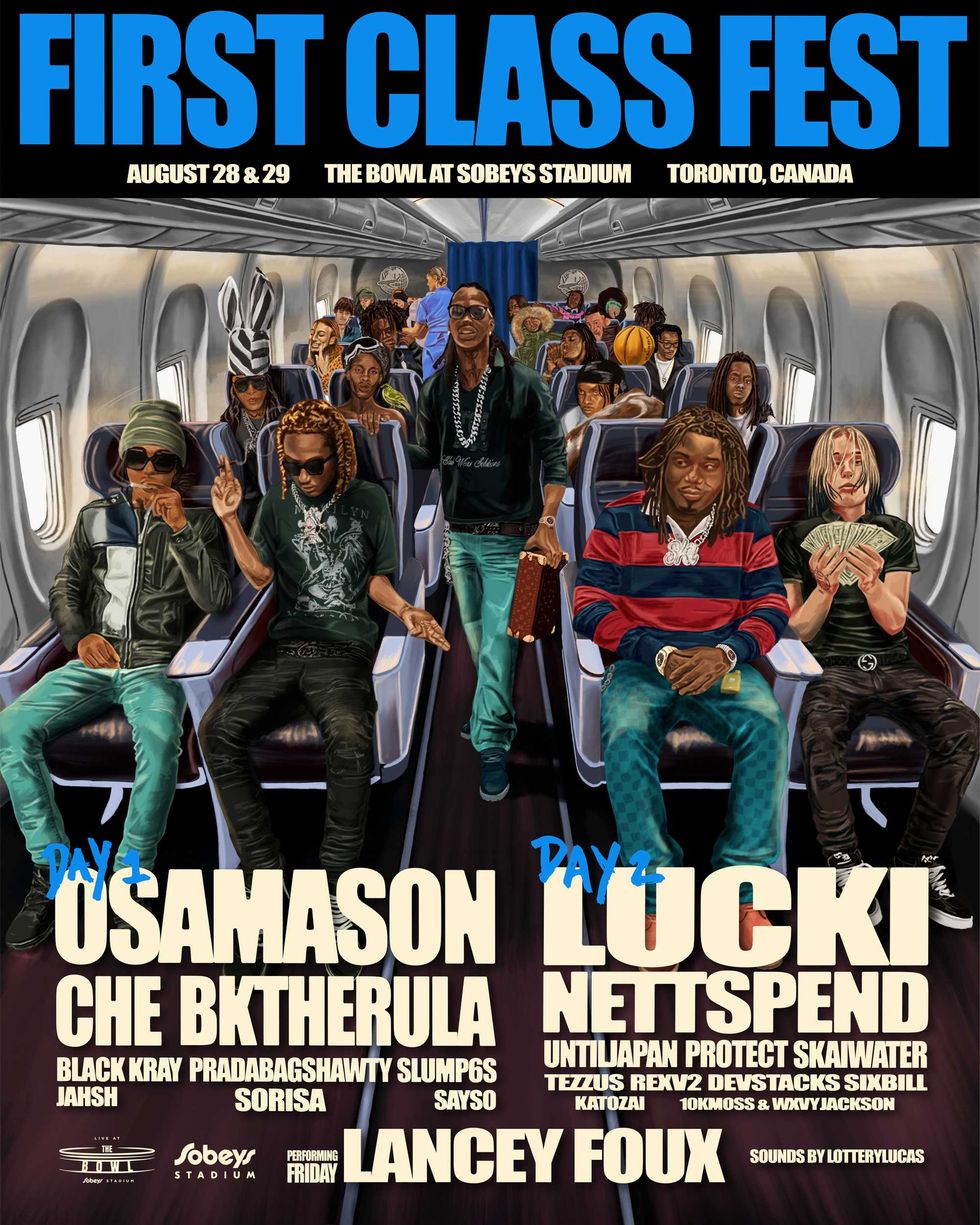Paul Brandt's Very Personal War Against Sex Traffickers
Calgary born country artist Paul Brandt has been lauded for decades for his service to the country music industry in Canada and is a recipient of 14 Junos, and numerous CCMA awards: SOCAN Song of t

By Bill King
Calgary born country artist Paul Brandt has been lauded for decades for his service to the country music industry in Canada and is a recipient of 14 Junos, and numerous CCMA awards: SOCAN Song of the year, CCMA Song of the Year, Single, Video, Male Artist, Album, and several international citations. In our conversation that follows below, it’s Brandt’s commitment to ending sex trafficking that drives him to face down a world of predators who buy and sell children as if they were put here to serve their pleasure. With successes beyond these shores and an ongoing campaign to rid Canada of this domestic scourge, Brandt was recently presented the 2019 Slaight Music Humanitarian Award in awareness of his efforts. Here’s how the Canadian Country Music Association addressed:
“Not only is Paul Brandt one of the greatest entertainers in our format and our country, but he is also an extraordinary humanitarian. Using his platform, he has become a strong voice for those affected by the horrible crimes of child sexual exploitation and sex trafficking in Canada, and we are in awe of the change he is creating,” said Tracy Martin, CCMA President. “The CCMA is honoured to recognize #NotInMyCity and Paul’s remarkable efforts to bring attention to this urgent issue in our country.”
Founded by Brandt in July 2017, #NotInMyCity serves to educate the public about the realities of human trafficking while also uniting Canadians in the fight to protect some of our most vulnerable citizens. Brandt and collaborative stakeholders recognized that many Canadians were unaware of the staggering facts surrounding trafficking. For example, 93% of Canada’s trafficking victims come from Canada, and more than 75% of people working in the Canadian sex trade began working as a child. More than a quarter of victims are under the age of 18 and, despite being only four percent of Canada’s population, Indigenous Canadians represent half of all human trafficking victims. Today, #NotInMyCity is a strong, collaborative organization, working with established agencies and groups to raise awareness and take action to combat human trafficking.
Slaight Music was started in 2011 with a mandate to support the Canadian music community through a variety of initiatives and to develop Canadian talent via strategic partnerships with industry peers. We work with artists from across the country and the musical spectrum, helping to further careers and get great music heard. We're also invested in the technology sphere, helping Canadian music entrepreneurs develop the next generation of digital platforms and services. And we support a variety of music-related events, causes, and charities.
Bill King: You founded #NotInMyCity July 2017. What brought you to this moment?
Paul Brandt: Years ago, I travelled to Cambodia, hosted by an organization fighting human trafficking and sexual exploitation, and we toured a district known for its draw to sex tourists; one because of the access provided by traffickers to extremely young children.
It was there that a California-based businessman was financing the construction of a three-story sex destination hotel, meant to accommodate busloads and planeloads of men from around the world there to exploit young children sexually. Several children were playing in the street that day, but one little girl who stood out to me. An adult took her by the hand and away to a waiting cab. I was informed like other children in that community; she was being taken to work at a local brothel - sold 6-8 times a night. She was five years old.
When the American businessman saw us working against his efforts, he decided to cut his losses and move on, putting his unfinished brothel building on the market. Our group pooled our resources and purchased the building. It was turned into a church/health clinic/school, with a renewed purpose to educate young Cambodians who would someday lead their nation to a brighter future. Today, trafficking activity in that community is virtually non-existent, and children run through the streets freely on their way to the new local playground.
I returned home and researched trafficking from a Canadian perspective, and what I found was disturbing. Trafficking doesn’t just happen in far-flung corners of the world, it’s happening in our communities, and is now one of the fastest-growing crimes in Canada, where, here in Canada, $280,800 is the annual profit per female made by sex traffickers. Since 2014, reports relating to the crime of cyber-sex trafficking, where three victims are held captive and abused sexually at the command and pleasure of remote perpetrators viewing online, have grown by more than 600%.
Here’s the definition of sexual exploitation by the United Nations: Any actual or attempted abuse of a position of vulnerability, differential power, or trust, for sexual purposes, including, but not limited to, profiting monetarily, socially or politically from the sexual exploitation of another The most common age girls are first trafficked in Canada is 13 years old.
All of these experiences left a feeling of urgency in the pit of my stomach - what will I tell my daughter I did about this? How will I teach my son how to respect and interact with women? What will I do about this atrocity?
Through a project born out of my role as Mount Royal University’s “Storyteller in Residence,” I worked with Branding and Marketing students there to begin building the Not In My City movement.
B.K: I caught Tom Hanks portrayal of Mr. Rogers a couple of nights back and was moved by it. Here was a man who lived up to his life’s work and cared deeply about children unlike other show business predators such as British entertainer Jimmy Savile who waltzed to his grave protected and shielded and died peacefully at age 84. What role do you see for all of us in the entertainment industry?
P.B: How can they make a difference? Whether one embraces the opportunity or not, being a public figure makes one a role model, and that comes with a responsibility. Today more than ever having a platform makes you a leader, and leaders should be beholden to a high standard. Traffickers are known to target extensive entertainment and sporting events as these events often increase demand which victimizes sexual exploitation and trafficking victims. Promoters, venue managers, artists or artist managers, athletes and influencers, publishers, songwriters, the list goes on. We are all-powerful influencers, and we have the privilege of steering people in the right direction to ending sexual exploitation and sex trafficking.
B.K: What are the objectives of #NotInMyCity?
P.B: Supporting High-Risk Youth, Building Community Awareness and Action, Working in Partnership with Indigenous Peoples, and Advancing Leading Practice.
Canadian Women's Foundation (2014) Assessment of Sex Trafficking in Canada https://5 www.canadianwomen.org/wp-content/uploads/2017/09/NB-Nov-14-FINAL-REPORT-Assessment-of-SexTrafficking-in-Canada.pdf
B.K: Do people come approach and want to share their stories with you?
P.B: All the time. Whether the person is a victim or survivor, or someone who has been involved in advocacy, once a person has internalized the realities of this crime, it becomes a life-long passion for sharing stories, continuing the conversation, and creating systems to advance freedom. As trafficking flourishes in secrecy, and is mostly a hidden crime, discussing this issue takes away the power that it has to continue destroying lives. Traffickers benefit when we keep this issue in the shadows, so discussing it with each other, sharing our passion for ending exploitation and trafficking with government leaders, and amplifying the messages provided through www.notinmycity.ca are all incredibly effective ways to fight this crime.
B.K: You are known for your kind demeanour and easily approachable. Where does this come from?
P.B: Ha, ha! I don’t know! Maybe it’s the sense of purpose I feel in what I get to do each day. I strive to treat people the way I’d like to be treated. Using music to entertain, provide an escape, educate and enlighten, all of these things are incredibly motivating, especially (#NOTINMYCITY’S ACTION PLAN MOVING FORWARD, SUPPORTING HIGH-RISK YOUTH, RAISING COMMUNITY AWARENESS AND ACTION, WORKING IN PARTNERSHIP WITH INDIGENOUS PEOPLES, ADVANCING LEADING PRACTICE.
• Wrap-around Community Response Model in place • Provincial services accessible, equitable, and consistent • Timely access to mental health services • Services are LGBTQ2+ inclusive and accessible • Legislation current and relevant
• Increased public awareness across Canada • Partnerships established with Canadian International Airports • Consistent provincial helpline established in alliance with the national hotline • Partnerships established provincially and nationally with government, corporate and community stakeholders
• Education/Awareness materials in place for frontline providers (EMS, Mental Health, Educators, Health, Children’s Services), parents and youth • Specialized training supported for frontline service providers • Relationships established with researchers, content experts and post-secondary institutes • Consistent collection/reporting of statistical data • Cultural diversity understood and respected • Establishment of an expert survivor advisory group.
• Engagement with First Nations, Metis and Inuit partners • Strategies mobilized in Alberta with Treaties 6, 7 & 8. 2019 – 2022) when they are being used to help prevent such a terrible crime. Music is healing and inspiring, and when used to its full potential, it has a significant impact on both individuals and cultures. The way I see my career, and my life is that I GET to do this, so when people approach me, it’s a privilege.
B.K: There are untold missing indigenous Canadians – many young women. Have you been able to talk directly with heads of provincial and federal parties about this ongoing crisis?
P.B: We have spoken with members from all political aisles and welcome all allies who want to join us in our cause. Trafficking should not be a political issue; a person’s right to be free is not a partisan issue. The MMIW tragedy is closely related to sex trafficking and exploitation. Aboriginal People account for 4% of Canada’s population but account for over 50% of trafficking victims in Canada.
B.K: The late Frank Zappa said, “Music is the only religion that delivers the goods.” Do you think he was on to something?
P.B: The word “religion” always conjures up another word for me. Faith. If a person has religion or belief but doesn’t act on their convictions, what’s the point? True religion should always “deliver the goods,” so if music inspires and compels people to do the right thing; to me, there is truth in Zappa’s quote. Music can influence a worldview and advance agendas— does the song glorify or encourage sexual exploitation or sex trafficking? Does the song elevate human dignity? These are the right questions to ask, but music won’t solve a problem like trafficking; only people taking a stand against it will.
B.K: The Slaight Humanitarian Award celebrates a person or organization who has made an outstanding contribution of time and energy in support of humanitarian causes. Any thoughts on receiving the award?
P.B: In my mind, I received this award on behalf of Not In My City. We have a small, but incredibly passionate and committed team who has moved mountains, even in our organization’s infancy. We’ve only been up and running for a little over two years. One of our objectives is to encourage people to educate themselves on the issue of sexual exploitation and sex trafficking with a focus on children and youth exploitation, and then we challenge people to do something about it. Once people know about this crime, as has been my personal experience, it compels action. With knowledge comes responsibility. We all have different capacities to effect change, but with an issue like sex trafficking and exploitation, we all have the same obligation; you have to choose a side. I’m thankful Slaight Music has prioritized supporting humanitarian causes and recognize the connection that music has with moving hearts and minds and creating change. Receiving the award is an incredible honour for me and our entire organization and has helped to continue to elevate awareness.
B.K: Socially responsible artists talk about giving back to their community. What does giving back mean to you?
P.B: I don’t see it as much as “giving back" as I do a lifestyle. I am having an outward-looking approach and a desire to stand up for people in distress. While it can be messy and intense, it always brings its rewards. For me, music, my personal life, philanthropy; are all seamless. They all flow together.
B.K: Country music has always been about that roots-connection between the artist, the land, and the people. Much has changed with the passing of the greats – Johnny Cash, Merle Haggard, and others branded rebels, yet they shared a deep commitment to addressing the disadvantaged. Do you feel the current generation of country artists share the same passion for justice and accountability?
P.B: The amount of passion each artist displays related to justice and accountability is an extremely personal expression, so it’s challenging to speak to this generally. I’ve met a lot of artists, both legacy and current, who do amazing things for humanity.
Johnny Cash is at the top of my list for music heroes. I love his example of standing up for the disadvantaged. Country music has a living metaphor in Nashville. The back alley between The Ryman Auditorium and Tootsie’s Wild Orchid Lounge was once dubbed “the fine line between Heaven and Hell.” It’s this alley that Hank Williams would cross after singing I Saw The Light to head over and drink at Tootsie’s. The connection that Country has to Gospel music is a clear one. Concepts of morality, what is right, what is wrong, are embedded in Country music’s DNA as a result.
Murder ballads, cheatin’, drinkin’ and leavin’ all point towards something being “good” vs. something being “bad.” The most compelling stories always have this tension— some morality play. I try always to remember this when I’m writing and developing my artistry. I begin every creative process asking myself—-What does the world need today?


















